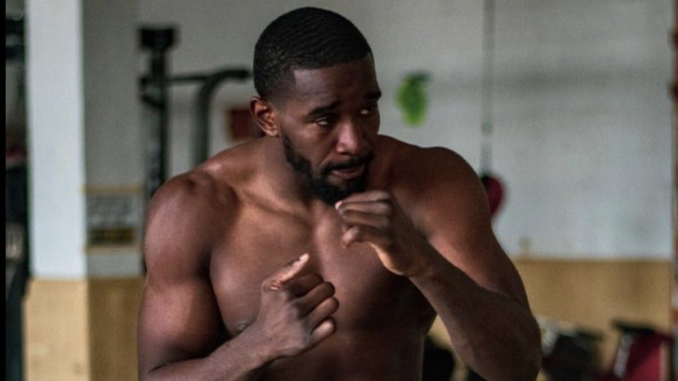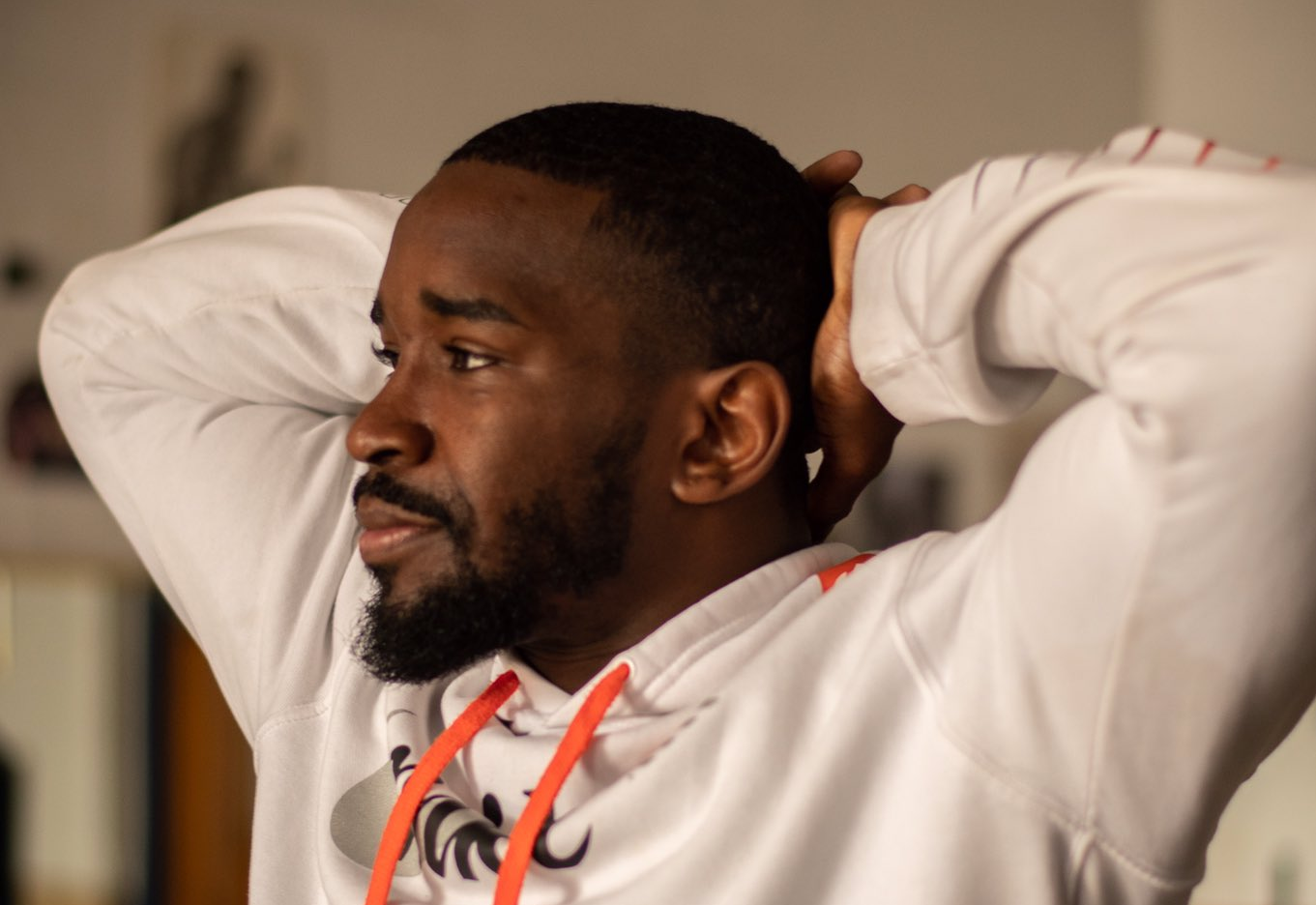
Weighing in before a boxing match is typically routine. But when Demond Nicholson stood on the scale for a scheduled bout in May 2019, he was already fighting for his life. Nicholson didn’t know it at the time, but he was suffering from kidney failure, which nearly cost him his life.
After a lengthy ordeal to overcome that malady, Nicholson (23-3-1) will meet Edgar Berlanga (16-0) in a super middleweight match on April 24 in Kissimmee, Florida, to be aired on ESPN.
Going back to the 2019 weigh-in, Nicholson recalls looking out from the stage and showing his arms to the cameras. An hour later, he felt extremely ill and could barely breathe. He thought a nap would be enough to get him back on track — that what he was feeling was the effect of cutting weight to make the weight class (168-pound limit).
That wasn’t it.

His father, Wilbert Nicholson, who was also his co-trainer at the time, said, “I believed it was something serious, so we took him to a hospital.”
The younger Nicholson was so weak he had to be carried down a flight of stairs and into a waiting vehicle. “With blood pressure 200 over 160, I could have had a stroke or heart attack while sleeping. But having the fighter mentality, I wanted to live to fight tomorrow,” he told Zenger News.
For years, while Nicholson had been beating up opponents in the ring, his body was taking a beating of its own.
“I was not drinking enough water, and then I would cut weight to make the weight class but not recovering properly afterwards and taking time off.”
Unlike many other professional athletes, boxers are rarely paid when they can’t perform due to injuries. Yet, giving up the fight represented more than a missed payday for Nicholson. His fight had been scheduled to appear on the undercard of a match between Julian “J-Rocks” Williams and Jarret Hurd — a fight of the year candidate broadcast on Showtime.
As Nicholson was laid up in the hospital, some feared he would never box again. He was diagnosed with kidney failure — a potentially fatal condition — and faced a month-long struggle in the hospital.
“Being on dialysis was one of the worst times of my life. Dialysis is not natural; it can kill you,” he said.
Once out of the hospital, he spent months recovering and getting back into shape, while also facing other challenges to his return to the ring, including a medical suspension, which was lifted in July 2019.
While in the hospital, Nicholson had vowed that he would beat his kidney condition and return to the ring. It wasn’t his first match with adversity.
Of four fights between 2016 and 2018, Nicholson won only one; two were losses and one was a draw. In retrospect, he wonders if his poor showing was due to his then-undiagnosed kidney condition. But at the time, he took it in stride — bouncing back to win a U.S.super middleweight boxing title in 2018 by knockout.
Next up were wins in October 2019 over Devaun Lee and another in February 2020 over Mike Guy, during which he survived a knockdown. With that pair of wins, his career seemed back on track.
Then came COVID-19, which has been a career killer for a variety of boxers. With so many events canceled, some fighters suffered upset losses after taking long layoffs. Though Nicholson hasn’t fought since last year’s match with Guy, he remains confident.
“COVID hasn’t bothered me…the kidney failure experience took me to another level mentally. I don’t let too many things both me. I remind myself that I am happy to be alive,” said the Laurel, Maryland, resident.

Nicholson remains focused on winning a world title in the 168-pound division, which is currently also home to “Canelo” Alvarez, who holds the No. 1 spot on the list of the world’s top boxers, pound for pound.
But Nicholson is also using his success in the ring to do more than chase a championship belt.
After his ordeal, he contacted the National Kidney Foundation to see how he could turn his experience into something positive for others. He became a celebrity ambassador in Maryland and Delaware for the organization, and has become an important advocate for kidney health.
“I wouldn’t wish what I went through on any human — no one. You have to be strong to deal with this,” he said. “The average person would have quit. My message is to take care of your kidneys, but if you ever go through anything that is not the end, you can still win if you fight. You can turn things around.”
(Edited by Matthew B. Hall and Judith Isacoff)
The post Super Middleweight Contender Faces More Than One Big Fight appeared first on Zenger News.
